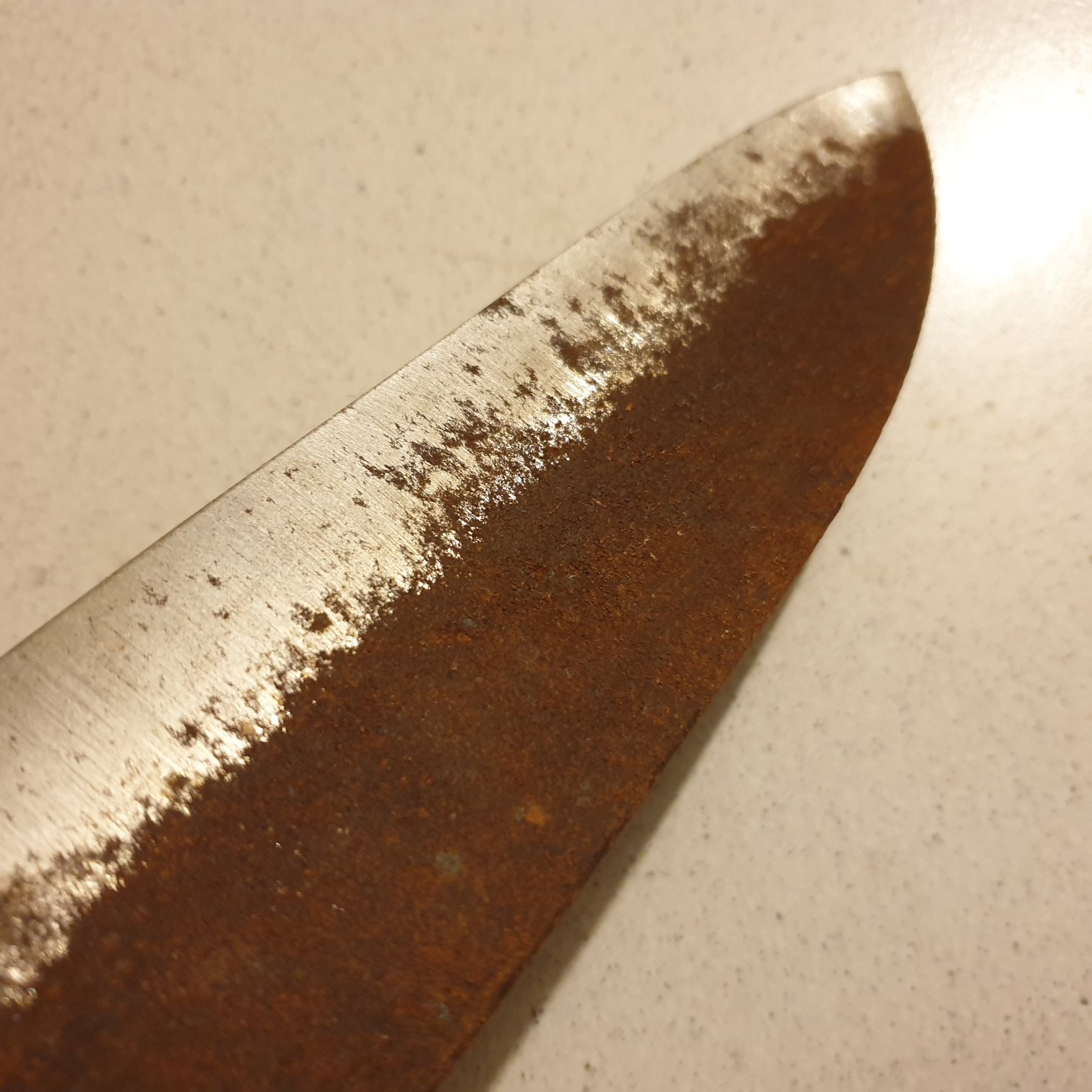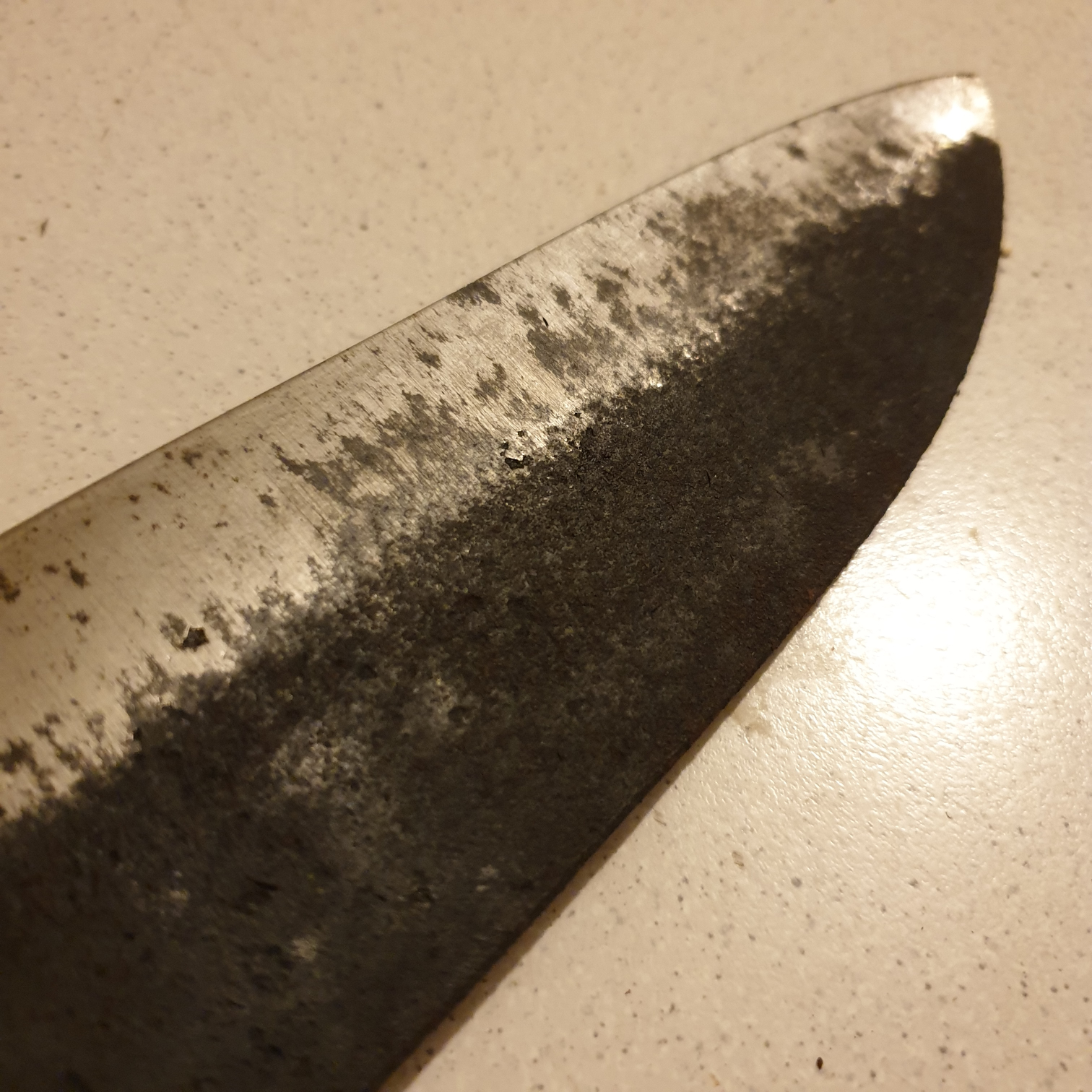inferno
( ͡° ͜ʖ ͡°) <*))))><
I just found rust spots on one of my kurosaki knives. its black but stainless clad.
and now i wonder whats a good method of removing it without removing the black oxidized coating in the process.
i have read that acetic acid/vinegar will work. or maybe work.
what about citric acid and oxalic acid?
i dont want the back coating coming off i just want to remove or neutralize the rust spots.
i have tried boiling red rusted blades to convert into black oxide.
but i have also boiled stainless clad knives and the cladding rusts when boiling it because the cladding had been worked with carbon steel tools.
and now i wonder whats a good method of removing it without removing the black oxidized coating in the process.
i have read that acetic acid/vinegar will work. or maybe work.
what about citric acid and oxalic acid?
i dont want the back coating coming off i just want to remove or neutralize the rust spots.
i have tried boiling red rusted blades to convert into black oxide.
but i have also boiled stainless clad knives and the cladding rusts when boiling it because the cladding had been worked with carbon steel tools.









